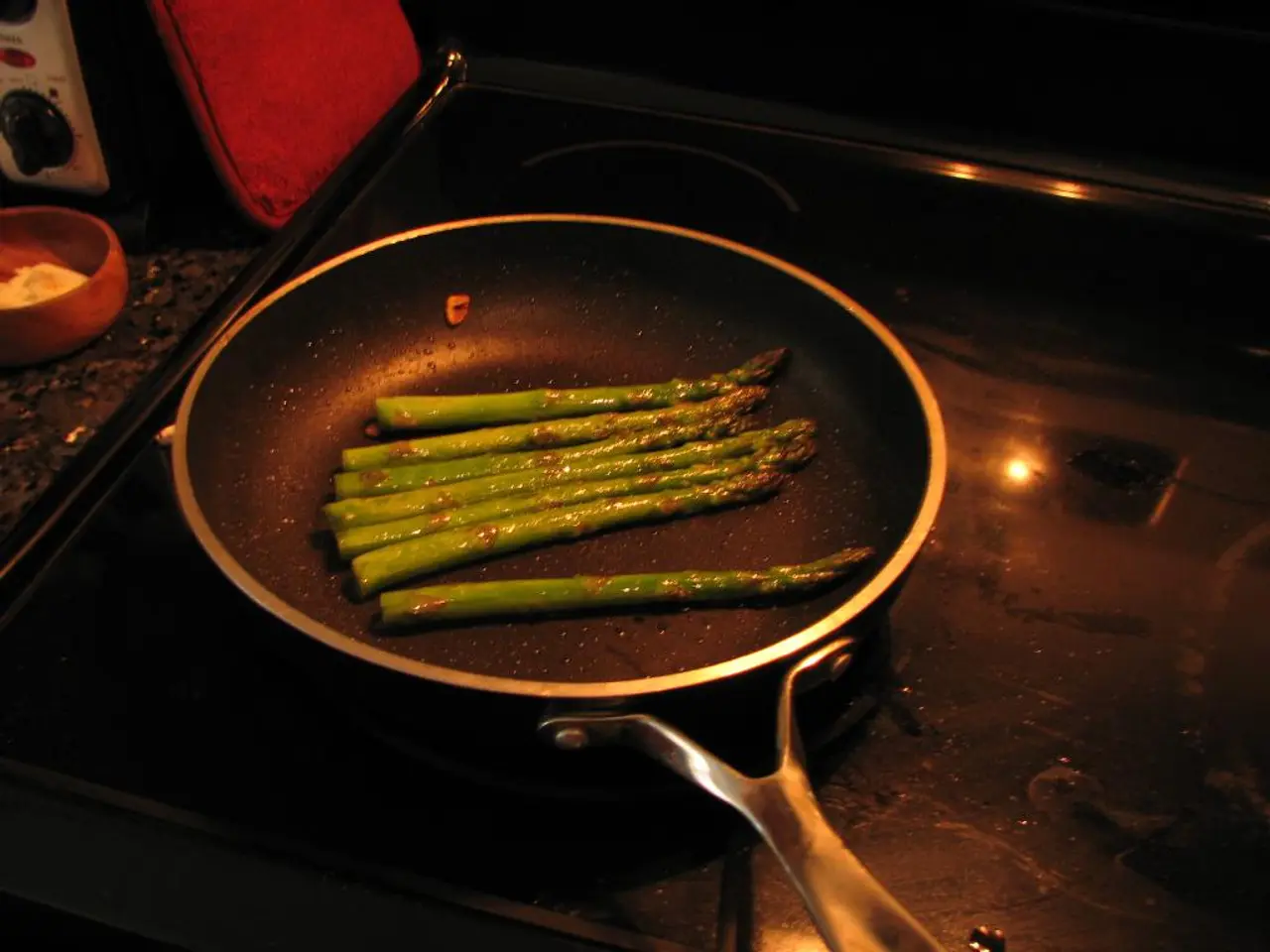Essential Tips for Fire Prevention and Safety in the Kitchen
In the heart of many homes, the kitchen is a bustling hub of activity. However, it's also a place where hazards can lurk, particularly the risk of kitchen fires. To reduce these risks, it's essential to follow some safety guidelines.
Firstly, keeping flammable objects away from heat sources, turning pot and pan handles towards the centre of the stove, and supervising children in the kitchen are simple yet effective measures to prevent kitchen fires. Unattended cooking, a leading cause of kitchen fires in rental properties, can be prevented by practicing safe cooking habits such as never leaving cooking food unattended.
Kitchen fires can cause serious damage to homes and injuries. In fact, according to the Country Fire Authority (CFA), most kitchen fires occur at 6pm, and most residential fires start in the kitchen. To mitigate this risk, it's important to be prepared with fire safety equipment and knowledge.
Induction models can be safer than gas because there is no open flame. However, it's always a good idea to have cooktop and oven inspected by a licensed professional to ensure they are working safely and effectively.
Another common cause of kitchen fires includes smoking and improper use of heating appliances. Strict safety practices and functional smoke alarms are crucial to minimise these risks.
Consumer Affairs Victoria (CAV) plays a critical role in ensuring smoke alarm safety for renters by setting and enforcing rental minimum standards. Landlords are responsible for providing and maintaining smoke alarms, informing tenants about their operation and maintenance, and ensuring emergency exits are unobstructed. Tenants must comply by not tampering with alarms and reporting any faults.
Additional measures landlords should take include installing fire suppression systems where applicable, providing carbon monoxide detectors where fuel-burning appliances are present, and maintaining fire extinguishers in kitchens and garages. Consumers and tenants share the responsibility of testing smoke alarms monthly and replacing batteries annually to ensure they function properly.
Regularly cleaning out the toaster for crumbs and regularly wiping down the stove top, oven, griller, and range hood can also help prevent fires.
In the event of a kitchen fire, turning off the stove if safe to do so is recommended. Never use water to extinguish grease, oil, or fat fires. Instead, a fire blanket or fire extinguisher should be used.
In 2023, the CFA responded to 250 kitchen fires across Victoria, underscoring the importance of fire safety in the kitchen. To keep your family safe, it's crucial to have a working smoke alarm in the kitchen and to know what to do in case of a fire.
If you're renting, it's essential to know that the rental provider is responsible for ensuring the property is appropriately fitted with smoke alarms, according to Consumer Affairs Victoria. Keeping a fire blanket and fire extinguisher in the home and knowing what to do in case of a fire is also recommended.
In summary, preventing kitchen fires in rental properties involves a combination of safe cooking practices by tenants, proper maintenance and installation of smoke alarms and fire safety equipment by landlords, and regulatory oversight by Consumer Affairs Victoria to enforce these standards and protect renters.
Maintaining a safe cooking lifestyle in a rental property is crucial for preventing kitchen fires. Regularly cleaning appliances like the toaster and stove, and never leaving cooking food unattended, are essential safe cooking habits.
In addition to these practices, landlords should provide and maintain functional smoke alarms, ensure emergency exits are unobstructed, and install fire safety equipment as necessary. Consumers and tenants should test smoke alarms monthly and replace batteries annually.




